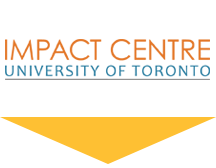As the job market continues to change rapidly, educational pathways to employment are also changing. Work integrated learning (WIL) is a fast-growing area that can help prepare students for new and diverse careers. As WIL environments become an increasingly common aspect of students’ postsecondary experience, new assessment methods are required to understand what skills and competencies students gain as a result of their learning experience.
This project seeks to find out more about the development of critical thinking skills among students who are participating in Entrepreneurial WIL (E-WIL) programs. Specifically, in a campus-linked accelerator, where students are expected to develop their own entrepreneurial idea and pursue the creation of a new startup.
The project asks: Can we confidently measure critical thinking skills in these diverse learning environments? Is the development of critical thinking skills affected by explicitly teaching students about the concept of critical thinking? For example, what differences can be observed between two groups of students in E-WIL environments when one group has critical thinking highlighted and the other does not?
This project, which will develop and test a critical thinking assessment tool, is based at the University of Toronto Impact Centre and will involve students at the University of Waterloo and Brock University as well. This cross-institution cooperation should shed light on whether the findings are unique to one institution or can be applied to others that offer E-WIL programs.
In this rapidly evolving knowledge economy, it is imperative that we attempt to determine all the different ways in which postsecondary institutions can best serve the needs of today’s students, as well as tomorrow’s.
Materials and Outcomes
Throughout the course of this project, updates and final reports will be posted here.

